Posted on Mar 20, 2025
How to Market Your Book in 7 Simple Steps
Ricardo Fayet
Reedsy co-founder and Chief Marketing Officer, Ricardo Fayet has worked with hundreds of authors on their launches and marketing campaigns. He is the author of two bestselling guides on marketing for authors, and a regular presenter at the largest writers' conferences.
View profile →When authors come to me for book marketing advice, they often assume I'll jump straight into advertising tactics. “What’s the secret to great Amazon ads?” or “How can I go viral on TikTok?” While these are good questions, however, they miss the real foundation of any effective book marketing: creating a great book readers genuinely love and want to recommend.
After working with hundreds of authors across dozens of genres and managing over a million dollars in advertising spend, I've found that all breakout books share similar traits.
In this post, I’ll unveil the seven steps that I consider to be the backbone of any successful marketing campaign — so you can apply them directly to your next launch. (And if you want to go even deeper, I wrote a book on the subject.)
1. Write a book readers can’t stop recommending
In the age of AI-written content, readers have more choices than ever. But there's one thing technology still can't reliably replicate: genuine reader enthusiasm. When readers love a book enough to actively recommend it to friends and online communities, it creates a snowball effect that no marketing tactic could ever match. Word of mouth is how breakout bestsellers are born. It’s something that even the world’s best marketer can’t achieve — you have to earn it through your book itself.
The critical concept to know here is product-market fit. Borrowed from the startup world, this term refers to creating a product (your book) that perfectly satisfies a market (your readers). As harsh as it may sound, books that don’t achieve true product-market fit have no chance of ever being successful — which is the reason why the vast majority of published books don’t sell more than a few copies.
So how do you achieve product-market fit?
Analyze your genre's market
First, you need to know your market. Great books are not written in a vacuum — they're created with a clear understanding of what readers already love in a genre. Spend time on Amazon, Goodreads, or your local bookshop looking closely at bestsellers and reader favorites. Read them and strive to identify patterns. Are they series or standalones? Are they told in first person or third? What are the common tropes?
Get better at your craft
Second, be realistic about your craft. If you’re new to writing, don't assume your first draft — or even your first book — will be ready to captivate thousands of readers. Think of writing like playing an instrument: it requires time, practice, and feedback to master. The same way you wouldn’t expect to learn to play the guitar in a day, you shouldn’t expect your first book to be a masterpiece. Consider investing in your writing craft early on, whether you do so through reputable writing courses, books, or even better: a Reedsy Learning membership.
Invest in editing services
Finally, invest as much as you can into editing before you spend a dime on marketing. A professional editor specialized in your genre won't just correct your manuscript: they'll educate you. Through them, you'll learn how to sharpen your dialogue, pacing, or characterization — improving not only the current book, but every future book you write.
Hire an expert
Sean L.
Available to hire
Proofreader/editor for 11+ years, reader for 40+, and as a lifelong fan, horror is my go-to genre.
Leila B.
Available to hire
Children's developmental editor (Chronicle, Macmillan, S&S) with 12 years' experience and faith that children's books can change the world!
Katie R.
Available to hire
Literary agent specializing in women's fiction, romance, and fantasy. See my bio for the current query letter deal!
Remember: great marketing can't save a weak book, but an outstanding book can succeed despite modest marketing. So your first and foremost focus should always be to create a book readers will genuinely fall in love with.
2. Build your mailing list before you launch
Launching a book without an audience ready to buy is like throwing a party and forgetting to invite guests — it won’t be much fun, and you probably won’t get another shot. The truth is, your book's launch is the single most important sales period in its lifecycle, so you must ensure people are ready to read (and recommend) it immediately.
While social media platforms like TikTok, Instagram, or Facebook can be useful tools, it’s risky to rely solely on them. These platforms control your reach — and their rules change constantly. If Facebook or Instagram tweaks their algorithms tomorrow, your ability to reach your audience might vanish overnight.
Instead, I always recommend building a dedicated reader mailing list (yes, email is still king). The reason is simple: control. Through email, you can communicate directly and consistently with readers who specifically chose to hear from you.
Pick an email marketing provider
Now, the first step is to pick a reliable email marketing service provider. There are dozens of options out there, but I tend to recommend either MailerLite, ConvertKit, or AuthorEmail. They're straightforward, intuitive, and used by most of the authors I know.
Give away a free resource
Now you may be wondering: “How do I get readers to sign up to my mailing list before I even have a book out?” Again, the answer is simple: you need to offer them something (this is what we call a “reader magnet”). For fiction, that something might be a free novella, a character backstory, a sample chapter, etc. For nonfiction, you could create a free short course, a checklist, a cheat sheet, or a webinar. Creativity is your friend here: just think about what could really entice prospective readers in your genre to sign up to your list.

Once you have a strong magnet, the next step is to place it directly in front of your ideal readers by:
- Running targeted ads on Meta (Facebook and Instagram)
- Promoting it on social media (TikTok)
- Taking part in group promotions through platforms like BookFunnel or BookSweeps
Once readers join your list, don’t neglect them. Regularly send engaging newsletters to nurture them. You can share your writing process, behind-the-scenes insights, or even sneak peeks of your work. Keep them excited so they're primed and eager to buy your book on launch day.
3. Optimize your retailer pages
For this step, you need to put yourself in the shoes of a potential customer. Imagine you’re a reader browsing your favorite bookshop for your next read. What’s the first thing you look at? The cover.
If the cover catches your eye, what next? You read the back cover description. If that description piques your interest, you’ll open the book and start reading. And if the first pages grip you, you’ll buy the book.
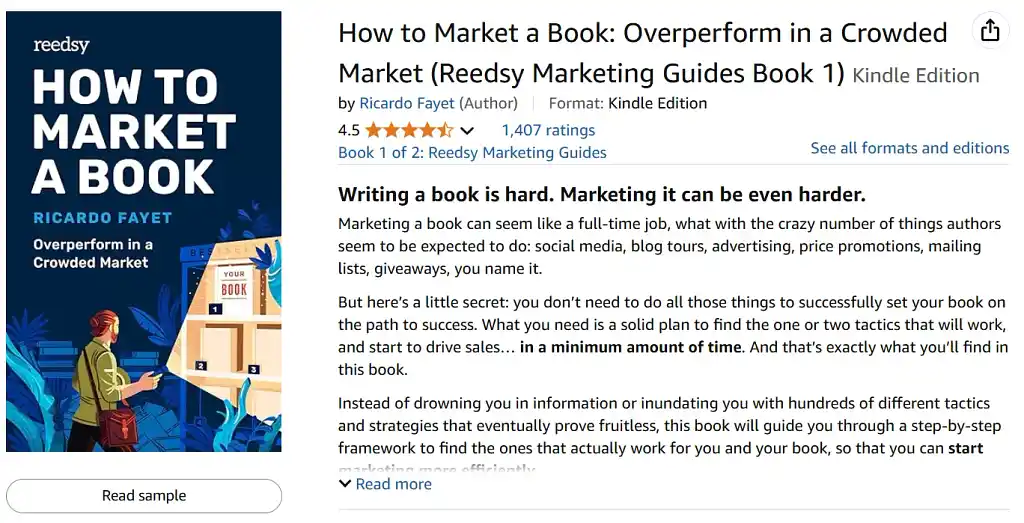
Online readers browsing retailers like Amazon, Apple Books, Google Play, or Kobo follow the exact same journey. The key difference is that everything instead happens on your book’s product page, which is why you need to nail every single detail on that page. By order of importance:
Your cover design
The one and only objective of your cover is to catch the eye of the right readers and get them to click on your book. It needs to both look professional and fit your genre perfectly (think fonts, colors, styles). Underestimating the importance of a great cover is by far the most common marketing mistake I see authors make. To showcase just how big a difference a professional cover can make, we ran this little experiment.
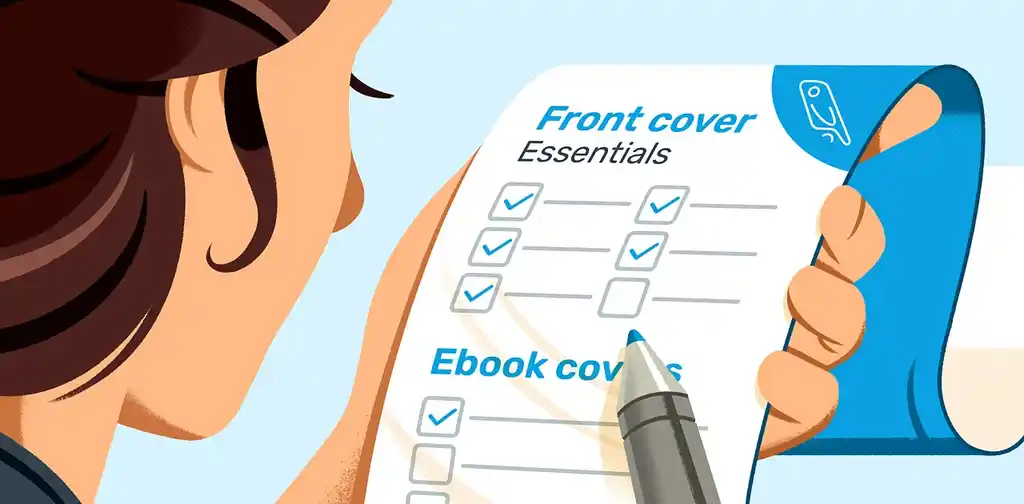
FREE RESOURCE
Cover Design Checklist
Make sure your book cover ticks all the boxes with our handy guide.
The book description
The blurb (or book description) is your second most important conversion tool. Readers decide quickly, so your blurb must immediately pique their curiosity. In fiction, start with the main characters, establish the conflict, the stakes, and raise compelling questions.
In nonfiction, be specific as to what readers can expect from your book and why you’re the right person to write it. Avoid overly detailed summaries or vague clichés — clarity and specificity win every time. Read more on how to write a perfect book description here.
The opening pages
Most online retailers offer the option for readers to “look inside” or “sample” the book. If a reader is intrigued by your cover and hooked by your blurb, they’re likely to just click that button and start reading. This is where the power of your opening pages come in: they need to instantly grip the reader. To do this, skip slow introductions or backstory and start your story in media res instead. If you can get readers to finish reading through the sample, you can be sure they’ll buy the book.
Categories and keywords
While keywords and categories don’t really impact readers, they are key to retailers understanding what your book is about — and who to recommend it to. Picking the wrong categories (or keywords) can have dramatic effects on your book’s visibility, so make sure to read our guides on choosing categories and choosing keywords.
Consistency
For the sake of not confusing readers, all the above elements should be consistent everywhere: from retailers (Amazon, B&N, Apple, Google Play, Kobo) to social media platforms (Goodreads, BookBub, TikTok, etc.), as well as your author website.
There is one final element that will play an important role in whether a reader decides to buy your book: other readers’ reviews. These are not entirely in your hand, but there are some simple ways to secure positive reviews right at launch.
4. Secure authentic reviews
Reviews present a bit of a chicken-and-egg problem. You can’t get reviews until your book is launched, but you can’t really promote a book that has no reviews.
The solution to this problem is simple: leveraging Advance Reader Copies (ARCs).
A traditional publisher, for example, will send out physical “advance” copies to booksellers and influencers to hype up the book and garner reputable reviews before launch. As an indie author, doing that can be cost-prohibitive — but you can achieve similar results by sending digital ARCs (use BookFunnel for that) to a team of carefully picked advanced readers.
Note that if you really want a specific, well-known reviewer to pay attention to your book, it can still be a good idea to invest in sending them a beautiful hardback, along with a personalized note (or some additional book-related swag). A physical book lying on their table will be much harder for them to ignore than a digital file. Naturally, you’ll need to reach out to them first to gauge their interest (and get their address!) — but most reviewers, even busy ones, won’t turn down a great-looking hardback.
Reach out to online and offline communities
Now, you might be wondering: “Where can I find readers for my ARC team?” Good question! Let’s break it down.
- Start with your personal network. Your friends, family, and connections who regularly read in your genre.
- Leverage online communities. Think Facebook groups, Goodreads, Reddit, etc. Make sure to interact with these communities regularly before posting about your book and asking for ARC readers.
- Reach out to other authors in your genre. A review from a well-known author in your niche is by far the best kind of review you can get, but it’s also the one that will take the most effort — as you first need to build a genuine connection with that author. Going to writers conferences, even before you launch your book, can be a good way to meet other authors in person and start building your network.
Pay to get a review
If you don’t have the time or energy for the above, you can simply use paid reviewer platforms, which specialize in linking authors with ARC readers:
- Reedsy Discovery: Our own review site with thousands of handpicked, professional reviewers. Note that at this time, you can only get one review through Reedsy Discovery.
- NetGalley: A famous ARC platform used by most traditional publishers. It can be cost-prohibitive to submit your book on your own, so look around for “NetGalley co-ops” instead.
- BookSprout: My favorite, indie-author-friendly service for reviews. As an exclusive perk to Reedsy authors, you can use this link to get two months free.
- Authentic Book Reviews: A newer, cost-effective service focusing on peer-to-peer author reviews. You earn points by reviewing other authors’ books, which you can then redeem to get reviews on yours.
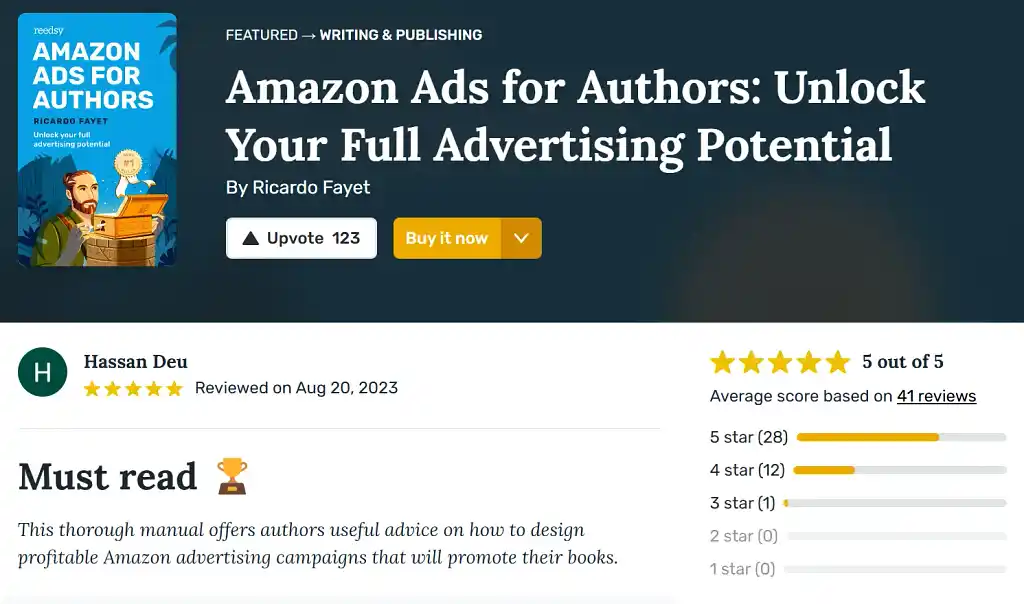
Whichever route you pick, make sure to send your ARCs well in advance (at least a month, and ideally three to six) so that you give reviewers enough time to read the book before launch. Send gentle reminders when launch time comes. Don’t forget to also clearly ask for honest reviews, and include direct review links to Amazon or Goodreads. In essence, make it as frictionless as possible for your ARC readers to leave their review.
Remember: reviewers are helping you, not working for you, so keep it friendly and professional. Over time, you'll develop relationships that will benefit your entire author career — not just this single launch.
5. Kickstart sales with a price promotion
With your initial reviews secured, your next step is to get your book into as many readers' hands as possible. And the best way to do that is to run a limited-time discount, also known as “price promotion.”
Now, a “price promotion” is exactly what it sounds like: you drop the price of your book (or set it free) for a limited period of time (anywhere from one day to a week or two). And while you’ll get the best results if you run this promotion right after launch, it’s really a tactic you can use at any point in the lifetime of your book.
If you are exclusive to Amazon and enrolled in KDP Select, you can even maximize your results by running either:
- A Kindle Countdown Deal, offering your book at a tempting discount (like $0.99) for up to seven days; or
- A Free Promotion, where your book is available free for five days.
Both receive extra organic visibility on the store and through Amazon’s auto-recommendation emails.
And if you’re worried about “losing revenue,” don’t be! Think of it as an investment instead. Every new reader you reach during your promotion is a potential lifelong fan, reviewer, or advocate who might recommend your book to friends, creating a ripple effect for future sales.
Price promotions are also an opportunity to reactivate your network. If you run it at launch, you can let your ARC team know about it: if they purchase your book (using the discount) before leaving their review, their review will appear as “verified” on Amazon and carry more weight.
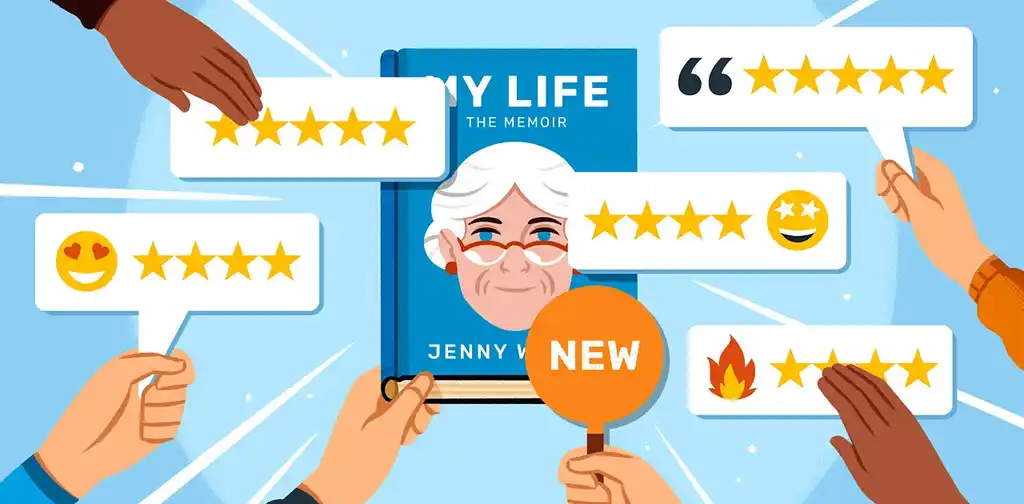
FREE COURSE
Book Marketing 101
Learn seven tried-and-true strategies for boosting book sales.
6. Try out proven advertising channels
Everything we’ve done so far has been to set up your book for success. And once you have impeccable retailer pages, a good number of initial reviews, and a scheduled price promotion, it’s time to get the word out about the book as far and wide as possible.
There are many ways to achieve that. Below, I’ll list the ones that I typically see work best for authors, but don’t let that stop you from trying other ideas (we have a full list of book marketing ideas here).
The main point to keep in mind right now, however, is that this is step 6 for a reason. If you haven’t done the preliminary work of the previous steps, you’ll just be wasting time and money on the below tactics. In particular: don’t spend a cent on Amazon, Meta, or BookBub ads until you have nailed every element of your product page — in particular your cover and book description.
With that out of the way, these are the tactics where you’ll likely get the best bang for your buck:
Price promotion sites
These are essentially newsletters promoting discounted or free books to an audience of readers they’ve cultivated over time. The most famous one is BookBub, but getting a BookBub Featured Deal is near impossible unless your book already has 50+ reviews. That said, there are many other sites you can try — we keep an up-to-date, tiered list of price promo sites here.
Amazon Ads
One of my favorite marketing channels for authors — so much so that I’ve written an entire book on the topic. While Amazon ads are tough to master, they’re not only relatively easy to set up and test, but they can also work across pretty much all genres and let you zero in your targeting on your exact reader.

FREE COURSE
Amazon Ads for Authors
Learn to reach readers while they browse the world’s biggest bookstore.
Meta Ads (Facebook/Instagram)
These take a bit more time to set up, as you need to come up with eye-catching visuals paired with short, hooky copy — something readers can’t resist clicking while scrolling through their feeds. I dedicate several chapters to Meta ads in How to Market a Book: Overperform in a Crowded Market, or you can take our free course on Meta ads here.
BookBub Ads
While BookBub is mostly famous for its coveted Featured Deals, they also offer a self-serve advertising platform. Over the last few years, it’s become increasingly difficult to get good results through BookBub ads, but they’re still definitely worth testing — especially if you’re looking to grow your sales on non-Amazon retailers. They can also be pretty powerful for audiobooks.
TikTok
In the past few years, BookTok has become one of the foremost sources of book recommendations, and it is one of the few social media (along with Instagram Reels) where it’s still possible to build a meaningful organic presence that leads to book sales. My main recommendation with TikTok — which goes for all social media in general — is to only try to leverage it for your book if you are already a user (and fan) of the platform. Forcing yourself to post consistently on a platform you don’t enjoy is never going to work.
Podcasts & influencers
The idea here is to leverage the audiences that podcasts or influencers have already built. The caveat is that you’ll have to compete for their attention, usually against big publishers and their publicity teams, and will thus have to put in an extra effort to catch it. That said, if you manage to get a strong recommendation from a well-known figure in your genre, it can completely change the life of your book.
Remember, marketing isn’t about doing everything — it’s about doing a few things very well. So don’t try doing all of the above at once. Instead, pick one or two tactics to test at a time, experiment, measure, and then zero in on what works for you.
This can often take time — I know authors who didn’t crack the marketing code until their second, third, or fourth book — so don’t get discouraged if you don’t immediately get the results you were hoping for.
7. Publish your next book
For a long time, the most prevalent marketing tip in the indie author world was to “just write the next book.” While this is definitely not enough — you can’t hope to make a living by just spamming out books without taking the time to market them — building your catalogue does remain one of the best ways to grow both your income and your author platform.
Almost all of the successful indie authors I know built their careers around series, and for good reason: readers love them. In commercial fiction genres like romance, mystery, fantasy, and thrillers, series dominate bestseller lists. And even non-fiction has embraced the trend, with popular series like Jen Sincero’s You Are a Badass books or Ryan Holiday’s Stoic Virtues Series.
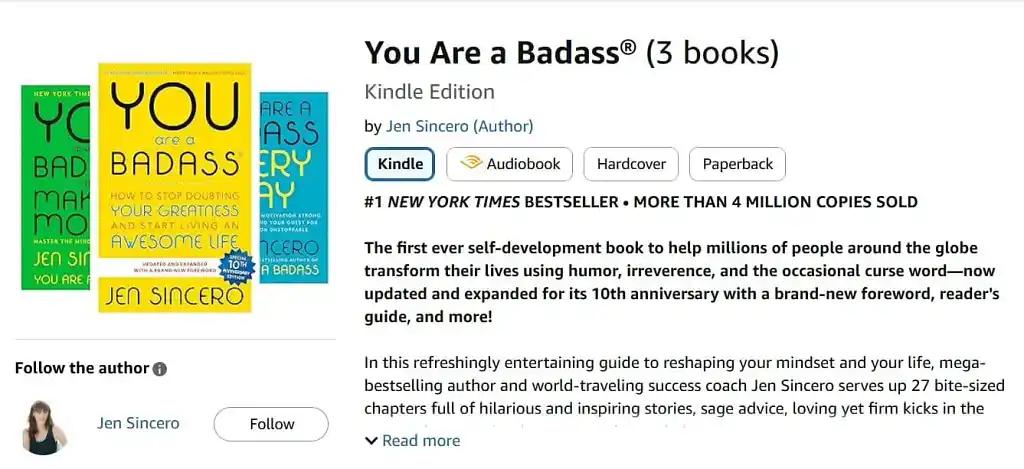
The magic of publishing a series lies in turning one reader into multiple sales. You may be familiar with the marketing axiom that “it’s much more expensive to acquire a new customer than to retain an existing one.” And series allow you to both retain and monetize your existing readers. In other words: it’s easier to sell 10 books to 10,000 enthusiastic readers than to sell one book to 100,000 readers.
Make your readers "stick around"
One of the key metrics that determine the success of a series is what we call the “read-through” — the percentage of readers who move from one book in your series to the next. If readers stick around, your income grows exponentially, and your marketing spend yields greater returns. Keeping readers invested from book to book ensures every dollar spent on ads works harder for you.
Promote different titles
Having multiple titles also expands your marketing options. You can’t run a price promotion on the same title every month without diminishing returns. Instead, having a series of multiple titles lets you rotate your promotions. One month, book one goes on sale. Next month, it’s book two, and so on. Every promotion or new release will boost the visibility (and sales) across your entire series.
Finding the right balance between marketing your existing titles and writing the next one can be tricky. When in doubt, I usually recommend focusing on your writing. As you may remember from our first step: you can’t market a bad book, so further developing your writing craft should always be your #1 focus.
As you’ll have probably gathered by now, there’s no shortcut or magic trick when it comes to marketing a book. Researching the market, writing a great book, building your list, optimizing your product page, and giving readers every reason to enthusiastically spread the word — this is what should be at the core of any book marketing strategy.
If you want to learn more about any of the steps I outlined in this post, you can download my free book: How to Market a Book: Overperform in a Crowded Market from our Reedsy Store here.
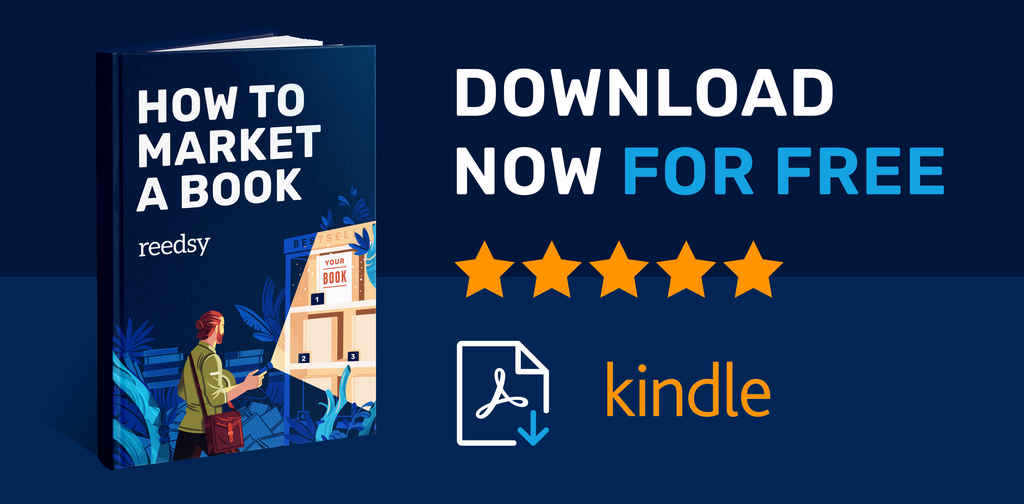


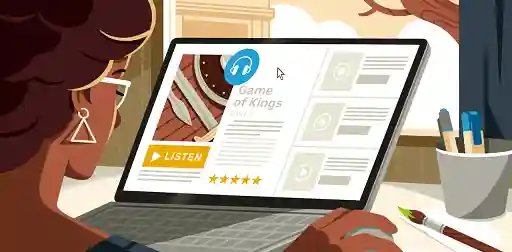





1 response
Shay says:
11/05/2020 – 16:16
As a systems oriented, process-oriented person this break down was the most helpful content I've read on the internet in the last 30-days. You now have a new follower for your blog.